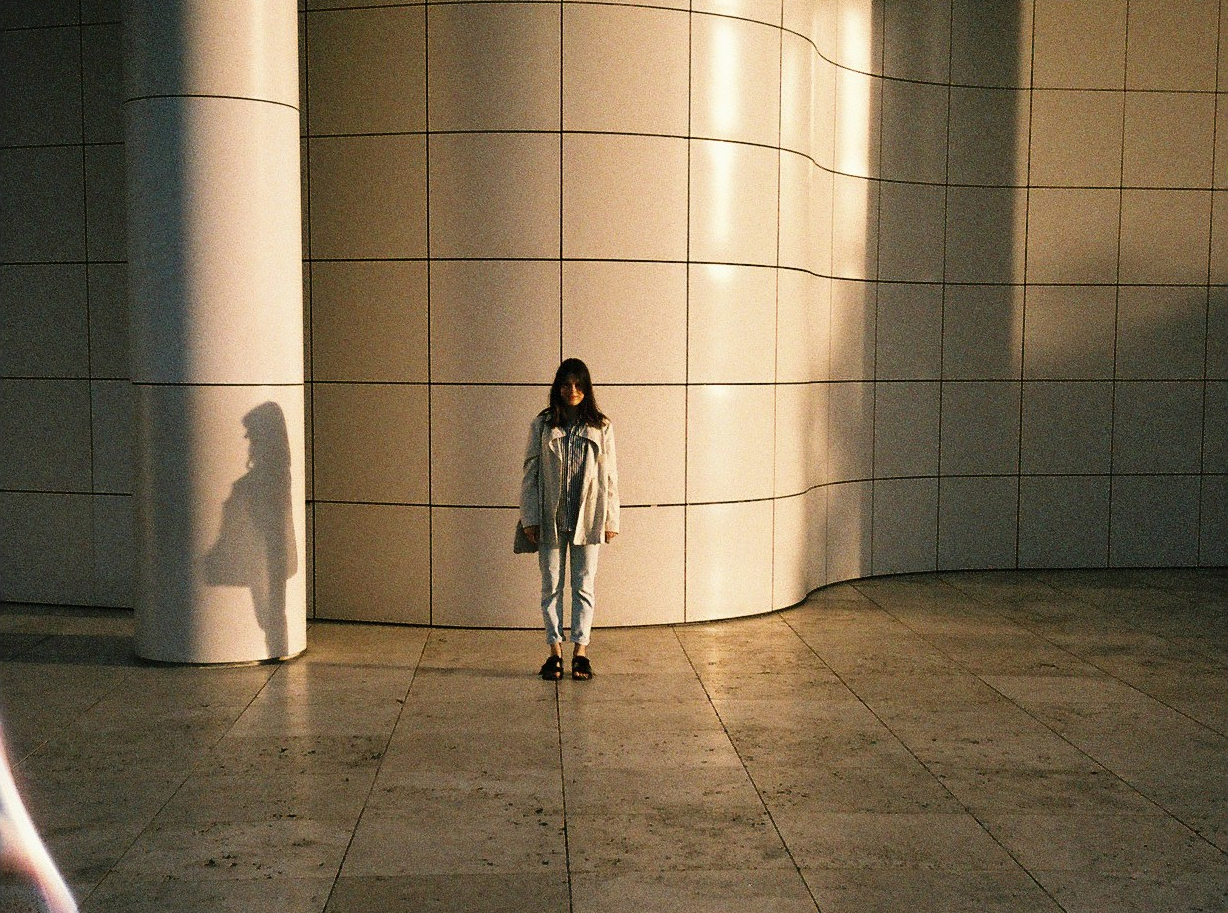Meet the Collaborator: Rachel Elliot-Jones, Molonglo

Rachel Elliot-Jones is the Head of Public Programs at Molonglo. For over a decade, Rachel has been a stalwart of our city’s art and design community, having contributed to organisations such as Assemble Projects, Right Angle — and MPavilion!
As we get ready to host Molonglo at the pavilion for Office Wear (part of the PayPal Melbourne Fashion Festival’s Independent Programme), we spoke to Rachel to learn more about her practice as a programmer, curator and creative producer.
You are the Head of Public Programs at Molonglo, a multi-disciplinary property development, research and publishing initiative based in Australia and Greece. Tell us about Molonglo, and what initially drew you to the organisation.
Molonglo is a property development company, but an unconventional one. Our intention is to create inclusive places that positively contribute to cities, improve people’s lives and instil pride. We accomplish this through investing in quality public spaces, collaborating with world-leading architects, incorporating local resources and craftspeople, diverse mixed-use tenanting, long-term stewardship and in-depth research into issues connected to the built environment to inform and improve outcomes.
I was drawn to Molonglo’s purpose, and how rich and varied the work is. Our projects span a range of geographies, scales and formats. My role reflects this — recently I’ve been working on tenanting approaches for Dairy Road, a new wetlands neighbourhood in Canberra where light industry, working, living, recreation, retail and entertainment will take place in a restored landscape; a studio program at Kaminos 44, a former ouzo factory in Piraeus, Greece, which we have repurposed for artistic work; and of course Office Wear at MPavilion 10, which is part of a broader exploration of workplace culture we have initiated in relation to Public Office, a new centre for creative work in Collingwood.
For MPavilion 10, Molonglo is co-presenting Office Wear, a panel discussion exploring workplace fashion standards and how it’s shifted over time. How do you view the relationship between fashion and work?
I see fashion as an opportunity for self expression and joy, no matter the context. In the workplace, what you wear can signify effort and respect, but what this means in practice will vary wildly depending on where you work and who you are. The goal posts of appropriateness are also constantly shifting, especially in our post-lockdown “power casual” moment. I think it’s fascinating to look at these constraints and their capacity to empower or exclude.
Why are workplaces and offices places of interest for you?
Molonglo has been designing and tenanting workspaces for more than 30 years, thinking critically about how places are made, inhabited and sustained. Personally I’ve become allergic to working from home since lockdown — I would choose a commute and the company of my colleagues over the dining table any day. But now that there is the option to work from anywhere, I think it’s interesting to look at what the role of the office could, or should, be. The question becomes where is best to get the work done, and how those places should look, feel and function. Not just in terms of productivity and efficiency, but also comfort, desirability, inclusivity and fairness.
Community-building through architecture lies at the heart of Molonglo’s activities. In your mind, how do public spaces like MPavilion change or shape a city’s landscape?
It’s important for cities to have non-transactional gathering places for people to come together. Public spaces like MPavilion change the social landscape of a place by welcoming people to come and activate it in a multitude of ways.
Having worked in the industry for some time now, what are some of the most valuable insights you’ve gained over the years?
The importance of long-term stewardship. A project is never “finished” when the building is complete. Great places take time, care and the right mix of inhabitants.
What is the most fulfilling part of your job?
Being able to connect with the people and organisations that make our cities great, whether that’s through contributing to design briefs, finding the right tenants for a place or facilitating conversations through programs such as MPavilion.
What is something that you do every day?
Dance in the kitchen with my kid before we get ready for the day.
What is a philosophy that you live and work by?
Remember to celebrate every achievement. Not great at this one, but I’m going to try this year.
As we celebrate a decade of MPavilion with MPavilion 10, do you have any standout memories from the pavilion?
Too many to mention, but definitely being involved at the very beginning. I was lucky to be part of the tiny team responsible for bringing MPavilion into existence, with the first pavilion designed by Sean Godsell. It has brought me so much joy seeing the project evolve and expand every year since.
—
Join us at MPavilion on Wednesday 28 February at 6:30pm for Office Wear, a panel discussion produced by Molonglo and moderated by Lucianne Tonti, fashion editor of The Saturday Paper and regular contributor to The Guardian. Office Wear is part of the PayPal Melbourne Fashion Festival’s Independent Programme.
Office Wear